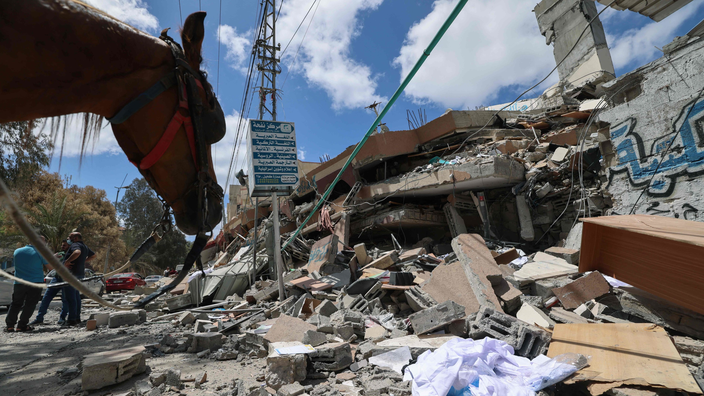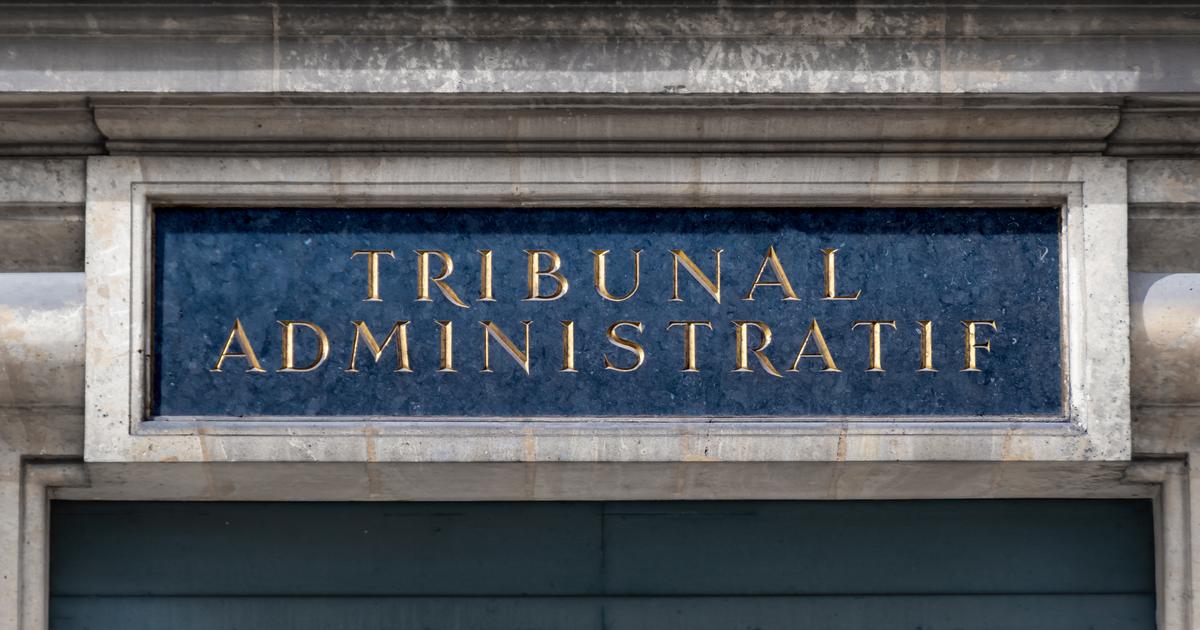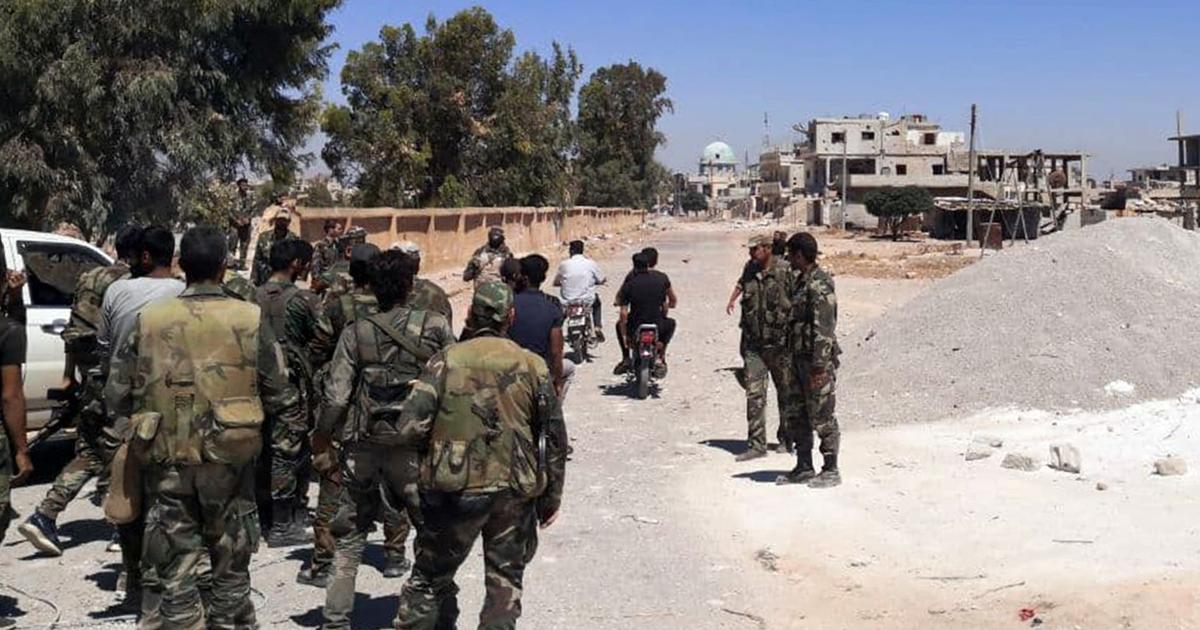It was the temple of books in the Gaza Strip. The place where high school students could find a textbook, the most practicing their Koran and the bohemian spirits of Dostoyevsky's translations into Arabic. But last Tuesday, the al-Mansour bookstore left. At around 5 a.m., Samir al-Mansour, its owner, was at home watching Arab news channels when he learned that a warning had been given by the Israeli army to destroy the building. The bookseller and publisher from Gaza, a Palestinian territory better known abroad for its wars than its publishing houses and its literature, rushed there. But Samir, in his fiftieth with salt and pepper hair, stopped about 200 meters away.
As a teenager, at 14, in the early 1980s, Samir started working with his father in the bookstore, then took the reins and set up, in 2000, a publishing house. On Tuesday, he saw the Israeli strike destroy what it took him a life to build. "
Forty years of my life have collapsed in a fraction of a second,
" he told AFP as he walked, his cigarette stuck between his index and middle fingers, at the foot of a mountain of cement blocks interspersed with ends. of paper and crushed plastic chairs. And at a time when rescuers are still searching for bodies or miracles in the rubble of a lightning war between Hamas and Israel that has left more than 240 Palestinians dead in just 11 days,Samir al-Mansour guesses a strange pit under his eyes.
In the early 1980s, Samir al-Mansour began working as a teenager with his father in the bookstore, then took the reins and set up, in 2000, a publishing house.
EMMANUEL DUNAND / AFP
“
There are 100,000 books under these ruins,
” he says, referring to these “
bestsellers
” like the Koran, textbooks for learning foreign languages like French, children's books and favorites like
Les Dostoyevsky
's
Karamazov brothers
, now buried in this cemetery of books.
The Israeli army claims for its part to have targeted during its intense campaign of bombardments, infrastructures and houses of commanders of the Palestinian Islamist movement.
And Samir does not budge: “
I have nothing to do with an armed group, with a political faction, it is an attack on culture. I went through two Intifadas and the three Gaza wars (...) but that had never happened to me, the bookstore had never been destroyed,
”he says. Her stepson, Montasser Saleh, who arrived in Gaza from Norway to visit the family shortly before the fighting began, was with Samir when his life turned upside down. "
We were at home watching TV. On al-Jazeera Mubasher channel, they said there had been a warning shot at the building housing the bookstore. We rushed to the spot. Samir wanted to search for papers inside, his computer, but he was afraid to come back, to be hit by a missile. So we stayed outside,
”he says.
"
With the destruction of Al-Mansour, Gaza loses one of its main cultural resources,
" said Mossab Abu Toha, poet and founder of the Edward Saïd library, created after the Gaza war in 2014. "
Al-Mansour c It is more than a bookstore, it is also a publishing house that published authors from Gaza. Manuscripts were printed in Egypt, books returned to Gaza, but others remained in Egypt and circulated throughout the Arab world. It made it possible to lift the siege of Gaza through literature
”.
In Gaza, literature remains a niche market. The local prints revolve around 1000 copies which does not detract from the works of Ghareeb Askalani or Yousri al-Ghoul, authors among others published by the editions of Samir Mansour. Al-Iqraa, another neighborhood bookstore punctuated by thousands of university students was reduced to ashes during these 11 days of bombardment, and a little further, the "
Makteba
" al-Nahda, which held more than the stationery that the large bookstore, has been reduced to a pile of rubble. But not in silence. In front of the ruins of this bookstore, a large poster has just been planted with the following sentence: "
al-Fikra ma betmout
" - Thought does not die! And a word assures a future reopening.








